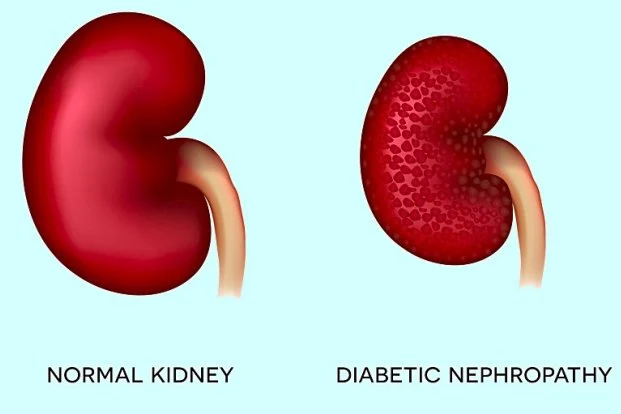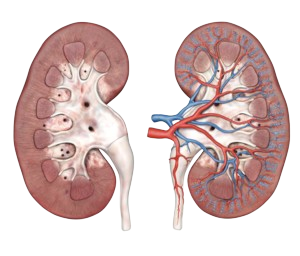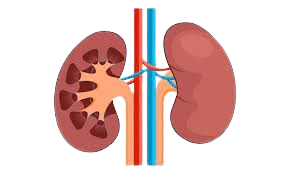Diabetic Kidney Disease
Diabetic Kidney Disease (DKD), also known as diabetic nephropathy, is a complication of long-term diabetes that damages the kidneys' filtering units. High blood sugar levels over time can cause the kidneys to work harder, leading to scarring and reduced function. DKD is a leading cause of chronic kidney disease and kidney failure. Early detection, strict blood sugar control, blood pressure management, and lifestyle changes can help slow the progression of the disease. DKD is one of the leading causes of kidney failure globally. Early detection and management of blood sugar and blood pressure are critical to slowing the progression of kidney damage. High blood sugar levels caused by diabetes can injure the blood vessels (glomeruli) in the kidneys, leading to a progressive loss of kidney function.

Causes of Diabetic Kidney Disease
- Uncontrolled Blood Sugar Levels.
- High Blood Pressure.
- Genetic Predisposition.
- Obesity.
- Smoking.
- High Cholesterol Levels.
- Prolonged use of nonsteroidal anti-inflammatory drugs (NSAIDs) and other nephrotoxic drugs can worsen kidney function in diabetic patients.
- Excess weight can worsen insulin resistance, blood sugar control, and kidney health.
- Unhealthy diet, lack of physical activity, smoking, and alcohol consumption contribute to poor blood sugar control and kidney damage.


Symptoms of Diabetic Kidney Disease
- Increased Urination.
- Swelling in Legs, Ankles, or Feet.
- Fatigue and Weakness.
- Shortness of Breath.
- Nausea and Vomiting.
- Loss of Appetite.
- Confusion or Difficulty Concentrating: A result of toxin accumulation affecting brain function.
- Persistent Itching: Caused by waste products building up in the skin.
